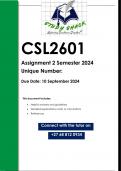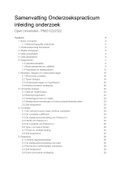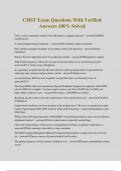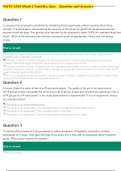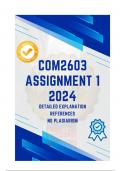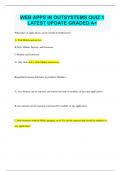This academic paper will discuss the prohibition of constitutional review in the
Netherlands. In the introduction, it will be explained what its basis in the law is, what it
means and what the effects are. Then it will be discussed how questions of constitutionality
of Acts of Parliament are solved in the Dutch constitutional system. Next, the system of
constitutional review in Germany and the United States will be discussed. Lastly, I will give
advice to the Minister of the Interior and of kingdom Relations for an amendment of the
Dutch Constitution.
In this paper, the word ‘law’ means an entire law, or a part thereof, approved by
Parliament and enacted by the administration. The word ‘government’ is used for the
combined three branches of government. The word ‘administration’ means the executive
branch of government in this paper.
First, the basis of the prohibition of constitutional review by courts is Article 120 of
the Dutch Constitution. It states: ‘The constitutionality of Acts of Parliament and treaties
shall not be reviewed by the courts.’ 1 The article means that Acts of Parliament and treaties
cannot be reviewed by courts whatsoever in any instance. Lower legal rules and
government policy, however, can be reviewed against the constitutionality by courts. In
practice, the article means that unconstitutional laws or treaties must be carried out, even
if they conflict with the Constitution. This might seem strange since the Constitution is
higher in the hierarchy of legal rules. Changing the Constitution needs a supermajority in
Parliament of 2/3rd of the parliamentarians, while changing the law only needs half of the
parliamentarians. The idea behind article 120 is that the legislative branch and the
administration are responsible for the interpretation of the Constitution. When there are
different possible interpretations of the Constitution, not the judge, but the legislature and
the administration have the last say.2
1
Grondwet 1815, art 120.
2
Leenknegt and Hirsch Ballin, Korte Uitleg van de Grondwet (Wolters Kluwer 2014) 273; A.D. Belinfante and
others, Beginselen van het Nederlands Staatsrecht (Wolters Kluwer 2015) 215-216; (A.J. Nieuwenhuis and M. den
Heijer and A.W. Hins, Hoofdstukken Grondrechten (Ars Aequi Libri 2017) 53.
, Floris Prins
SNR: 2070985
On top of that, this article has been interpreted quite broadly by Dutch courts. In
1961, the highest court ruled that even the used procedure when the law was passed could
not be reviewed.3 For example, whether there actually was a majority in Parliament when
the chair said so. Another case where the broad interpretation prevailed was a case about
the Statute of the kingdom.4 The Statute is the overarching constitution of the Kingdom of
the Netherlands. The Constitution is only applicable in the European part of the Kingdom.
The statute does not say anything about the possibility of constitutional review. In the
absence of ‘the text of the Statute or the official explanation or the history of its creation’ 5
that unambiguously point out that constitutional review is allowed by courts, the status
quo of no constitutional review by courts must be continued.6
3
HR 27 January 1961, ECLI:NL:HR:1961:AG2059.
4
Statuut voor het Koninkrijk der Nederlanden 1954.
5
HR 14 April 1989, ECLI:NL:HR:1989:AD5725, para 4.2.
6
HR 14 April 1989, ECLI:NL:HR:1989:AD5725.
1

